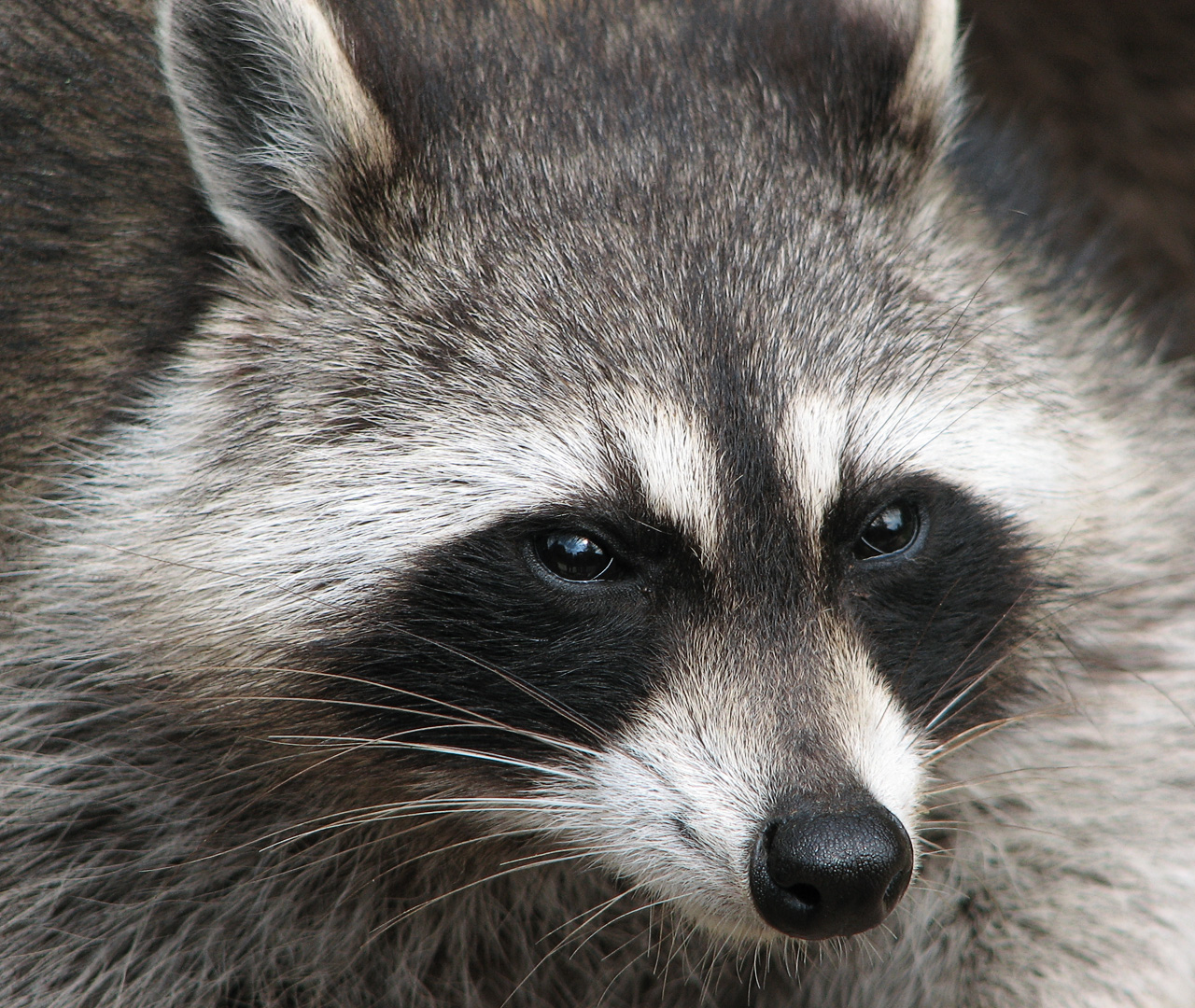
All gardeners from beginners to experts have run into the occasional garden pest. Be it damaging insects, wild animals, or even the family pet, many solutions are available to keep garden pests away from your prized plantings.
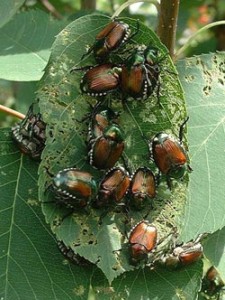
This year, the squirrels and raccoons have already dug up several clumps of my daffodil bulbs. It doesn’t happen every year, so I’m never sure whether I’ll need a solution on hand. See photo below from yesterday morning:
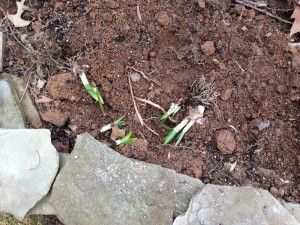
If you aren’t able to walk around your garden every morning or evening, it’s possible to lose otherwise healthy plants due to exposed dried-out root balls that have been dug out of the ground. Usually, just-planted pansies, impatiens, and other flat-grown annuals and perennials have the greatest opportunity to be pulled out of the ground by pesky squirrels and other rodents. The squirrels in my area also love to tear through seed pots that I’m trying to get started in early Spring. I’ve used plastic netting over the pots, as well as sprinkling some gravel on the soil.
I’ve found that using blood meal not only provides some nutrients to your plants, but it also acts as a deterrent to the annoying diggers. Cayenne pepper
works wonders as well. Usually animals won’t eat daffodil bulbs — however, they do love to eat tulip and other bulbs.
Not all garden visitors are destructive. There are many beneficial insects, such as bees, ladybugs, spiders and even toads. Bees polinate your flowers, ladybugs snap up stem-sucking aphids, spiders prey on other insects, and toads are happy to snare mosquitos and fruit flies. Snakes can eat mice that feast on your newly ripening tomatoes and squashes. And birds and bats eat many insects as well.
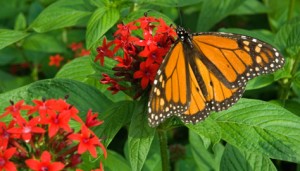
“Bad” bugs such as Japanese beetles, leaf-chewing insects, stink bugs, beetles, and damaging ants can be controlled with sprays, granules and even diatomaceous earth. I’m a proponent of trying to use safer products rather than the usual super strong insecticides from the long-established manufacturing companies like Ortho. I’m not a fan of the Japanese beetle collection bags and pheremone attractants. My solution is to collect the beetles in a jar of alcohol. They will smother instantly.
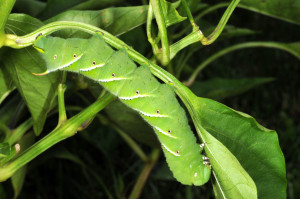
Raccoons will dig into your lawn and flowerbeds looking for grubs, as well as knocking over all sorts of garden decor (they love to upset birdbaths but that’s another story). Treating for grubs is likely a better solution than allowing the masked bandits to uproot your plantings. I did notice some flickers in our yard recently — poking into the lawn for grubs and other insects. The birds cause far less damage than the raccoons. To stop the damage, you need to get rid of the grubs.
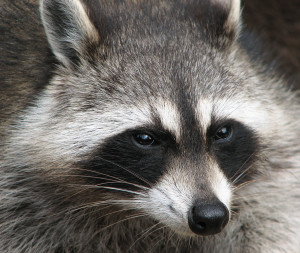
Raccoons are not afraid of people, so be careful if you come upon one. Raccoons can carry rabies so if you see one during the day that is not in the deep woods, stay away, and call your local animal control service.
Voles and moles are another issue altogether. They love to wreak havoc in the lawn, chew on plant roots, and will make raised trails in your garden. Everyone has probably tried pouring castor oil down the vole/mole holes. It hasn’t worked for me, but other gardening friends swear by it. Basically the difference between voles and moles is simple. Voles, as vegetarians, will mostly eat plant matter, gnawing on plant bases and roots and tree trunks and roots. Moles, as carnivores, eat grubs and other insects as well as earthworms and don’t prefer plant matter. Moles will use the voles’ underground pathways to access their underground live food sources. You can also use VoleBloc
which is a sharp stone that you mix into the soil.
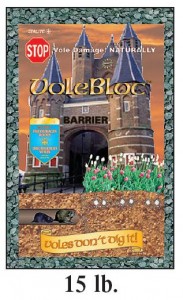
Rabbits love garden vegetables and tender new annuals. You can repel rabbits by fencing in your vegetable garden with a metal chicken wire or picket fence. Be sure that the chicken wire extends at least 6 inches below ground — rabbits like to dig holes under fences. You can also use raised beds to keep rabbits out of your garden. They can still jump up onto the raised bed, so be sure to use some fencing.
Deer can strip an ornamental shrub in about 10 minutes, and an entire vegetable garden in about 30 minutes. Even “deer resistant” plants, trees, and shrubs can be sampled and spit out. Many deer repellent products are available on the market these days.
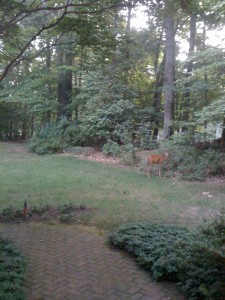
Once, a deer pulled up a just-transplanted small red azalea in my yard, ate most of the leaves and some branches, spit out a few, and then left. I set off learning how to make a deer resistant landscape. And that’s a whole article in itself! (Coming soon….)
++++++++++++++++++++++
Solutions for Garden Pests:
Grubs in the lawn or flowerbed: Grub Control products such as GrubEx
will help control insects in the ground.
Squirrels and other “diggers”:
Using a covering of chicken wire under mulch or using an underground chicken wire “basket” for bulbs will keep the critters from digging them out.
A covering of sharp decorative gravel will also discourage digging. You can also purchase blood meal to scatter into the soil above and around the plants:
Non-beneficial insects can be controlled with safe products. Try insecticidal soaps and other organic options:
To control Japanese beetles in a safe way, catch and douse them in a jar of rubbing alcohol instead of killing them with insecticide. Of you can use an insect catcher like this one:
Use beneficial insects such as ladybugs and other predators to devour the non-beneficials:
Deer browsing can be controlled by: Bobbex is a great topical spray to repel deer. It doesn’t smell very good and washes off the plants after a while — but it will last long enough for Bambi to look for dinner elsewhere. I’ve had some good success with Bobbex.
Voles and moles:
Pour castor oil into the holes and hopefully the moles and voles will move elsewhere.
VoleBloc is a sharp gravel product that you add to the soil surrounding your susceptible plants. I have found that VoleBloc works wonders to save my hostas. Usually each year, one hosta would “disappear” until I found this product. Digging in around the plant’s roots, sprinkle in some of the VoleBloc and you’ll have adequate protection. Get your VoleBloc at Amazon.com:
My husband likes to use “Vole Bombs” which are smoky “bombs” that don’t make noise, but do emit some nasty smelling fumes to hopefully drive the voles and moles out of their underground lairs. Get your smoke bombs for moles and voles.
Also, you can use Mole/Vole Pest Repeller that emit a sound underneath the ground. I’ve not found these products to work in our landscape, although you might have better luck.
Preventing your family pets from causing garden damage:
Even the family dog can cause havoc in your landscape by digging holes and relieving itself in the landscape. There are several dog repellent products available such as SCRAM and others. Be sure to pick up any dog droppings that you find around your plantings, especially the edible plants.
For female dog urine stains on the lawn, you can use these products:
If you’re not entirely sure what is damaging your garden, you can install an outdoor wildlife camera. We have an outdoor camera that take amazing still photos and video, even at night!
What do YOU use to control garden pests? Leave a comment and let us all know!

Leave a Reply
You must be logged in to post a comment.